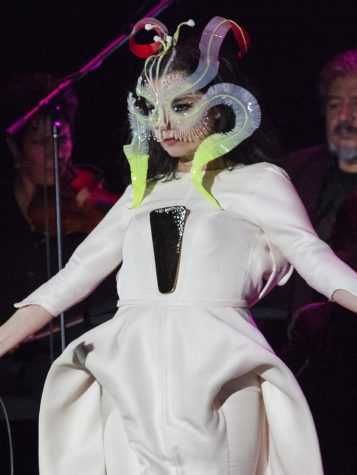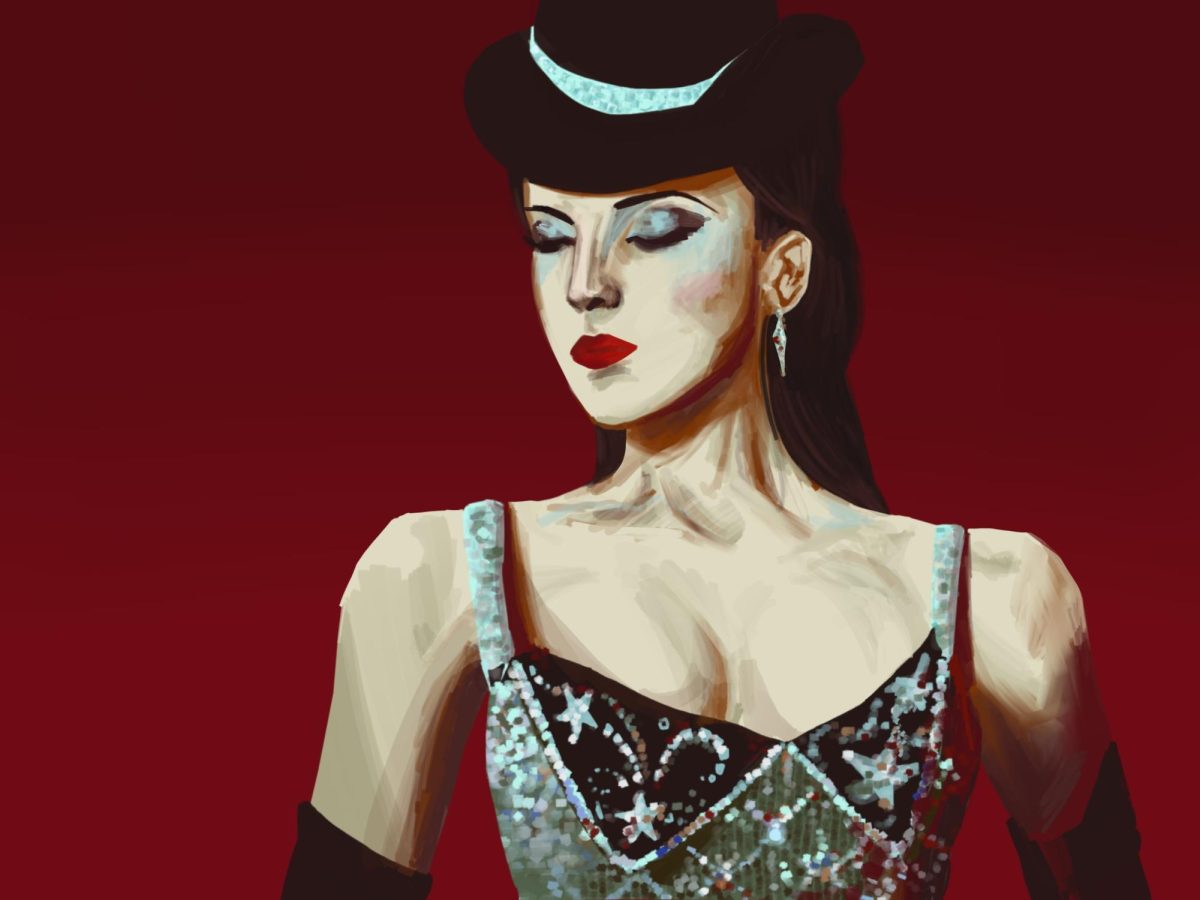Björk Falls Flat with Latest Album
December 19, 2017
Falcon Rating: 2/4
If there’s an artist alive today who has experimented with more genres and styles than any other while still remaining on the forefront of their country’s pop culture output, then that artist is undoubtedly Björk. From her start in indie and punk bands kept local to her native Iceland and a storied art-pop output as a solo artist through the 90s that saw her touring around the world all the way to the more experimental electronic output and collaborations she’s known for today, Björk has remained a powerful and dominant voice in the music industry.
2015’s Vulnicura, conceptually and lyrically centered around the dissolution of her marriage of thirteen years, garnered high praise from critics in comparison to her prior couple of releases; Consequence of Sound magazine gave the album an “A-” rating, and media company Pitchfork, assigned the album an 8.6 out of 10. Shortly after, Björk was already discussing plans to release her next album—the light to Vulnicura’s dark—in an interview published by Another magazine, and, after a short two-year wait, Björk’s new album Utopia was released.
Sadly, the short germination period of the album has meant that many recycled concepts carry over from Vulnicura, often with a reduced emotional impact. Arca, an artist whose drum programming and glitchy compositions were featured heavily on Vulnicura, returns again for this album with what feels like even more of his glitchy drums permeating through each and every song. However, while this contribution meshed well with the generally somber string-based instrumentation on Vulnicura, the more optimistic and woodwind-centered sound on Utopia clashes with Arca’s drums on a texture level.

Pictured: Björk performing live in Mexico in March 2017.
Here, the worst quirks of Björk’s songwriting are apparent. Her more recent tendency to write songs without a clearly identifiable melody can at best lead to songs that feel ethereal and dreamy, like the album opener “Arisen My Senses,” but at worst it leads to ten-minute tracks that sound like improvised spoken word with the occasional burst of flute noise, represented in “Body Memory.”
While a track like this would be forgivable if the words were up to snuff, another facet of writing music Björk has always seemed to struggle with has been the lyrical content of her songs. On her previous album, her tendency towards more raw lyrics helped to sell the tortured self-portrait she sought to portray, but when the same impulsive, first-word-that-comes-to-mind writing comes into play on the single “Blissing Me,” the result is cringe-inducing.
Clocking in at 71 minutes long and fourteen tracks deep, Utopia is hard to sit through. Even though a couple of tracks (notably “The Gate” and “Paradisia”) are inoffensive and occasionally even pretty, they fail to liven up their respective halves of the album in any substantial way. While some who have been devout followers of Björk will find in this album everything they ever wanted from the artist, others will find here a sparkly mess of sickly-sweet textures, swirling flutes, and spastic beats—a package bursting at the seams with maximalist intent, yet failing to land in any capacity as a whole body of work.
This piece also appears in our December print edition.









